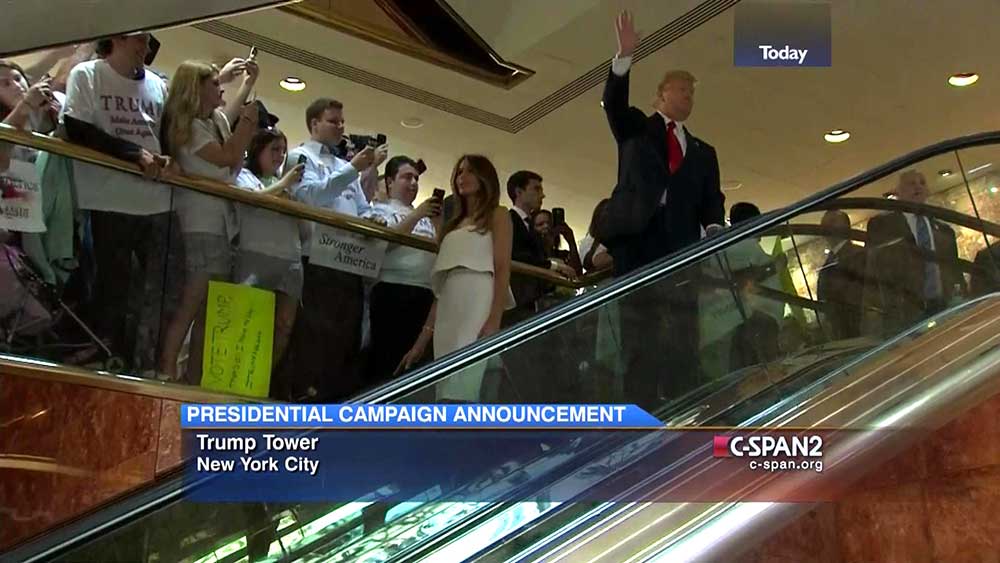Over the last few election cycles, polling companies have run polls years very, very early. Not just months, but years before the Democratic and Republican primaries. It’s pretty easy to look at this and wonder… why? After all, very early polls often cover people who never even end up running. What was the point of NPR running a head-to-head poll between Donald Trump and Oprah Winfrey of all people, back in January 2018?
But examining past polls reveals something interesting: Even very early polls can be predictive of the eventual winner of presidential primaries.
Donald Trump was actually something of a late bloomer compared to the two previous Republican primary winners in that he didn’t lead in a single nationwide primary poll until about 20 months before the general election (February 2015).
Mitt Romney led in a poll conducted more than 4 years before the 2012 election, and the late John McCain led in a poll nearly 3 1/2 years before the 2008 election.

By the time Donald Trump oozed his way down his down his golden escalator and announced his candidacy on June 16, 2015, he had already been leading in some polls for 4 months.
In the last 5 contested primaries (those occurring between 2004 and 2016), on average the eventual primary winner first led in a poll 2 years and 4 months before the general election. To put that in terms of the 2020 election, we would expect that the eventual winner of the 2020 Democratic primary has already placed first in a nationwide poll conducted no later than July of 2018.
Candidates who meet that metric? Joe Biden and Bernie Sanders.
But don’t start fretting about Buttigieg et. al. just yet. John Kerry set a rather low bar by not taking the top spot until January 2004, so your preferred candidate has until January 2020 to make their move. Though on the other hand, Kerry placed 2nd in several polls through 2002. In polling through late 2018 that included both Joe Biden and Bernie Sanders, the only other potential candidates that have taken second are… Hillary Clinton and Oprah Winfrey. Barring a last second shake up, maybe your fave but-as-yet relatively undiscovered candidate is boned, and we’re stuck with either Biden or Sanders).
But generally speaking, eventual winners have tended to show strength in polls VERY early. For each of the last 5 primaries not involving a sitting president, below is the date of the earliest nationwide poll in which the eventual winner led:
- Trump in the 2016 Republican primary: February 22, 2015 (20 1/2 months before the general election)
- Romney in the 2012 Republican primary: October 23, 2008 (48 1/2 months before the general election)
- Obama in the 2008 Democratic primary: April 23, 2007 (18 1/2 months before the general election)
- McCain in the 2008 Republican primary: June 22, 2005 (41 1/2 months before the general election)
- Kerry in the 2004 Democratic primary: January 25, 2004 (10 1/2 months before the general election—Kerry was a close second in many polls as early as 2002)
Clearly, there’s something to be said for having an early lead… even if it’s very early.